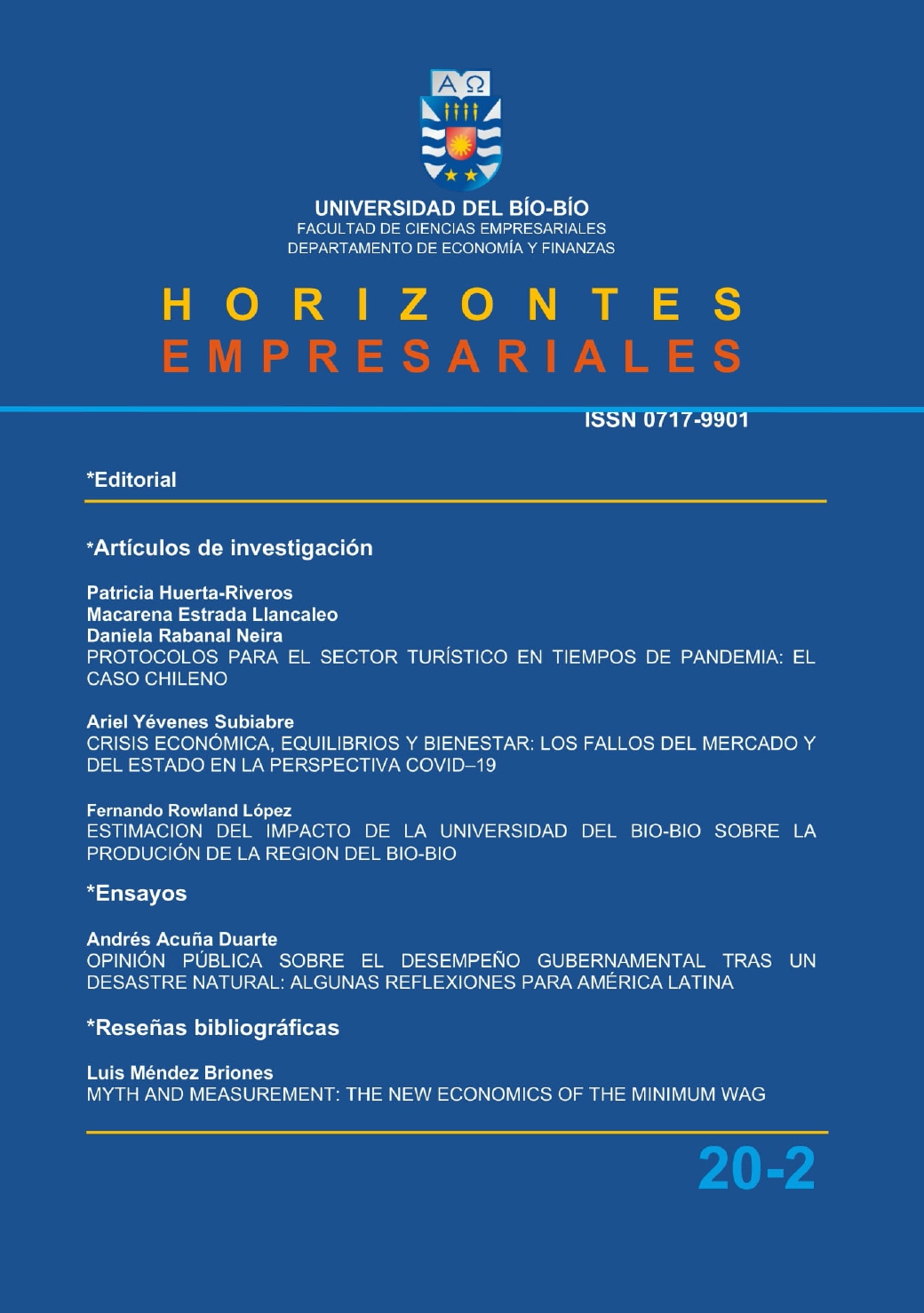Opinión pública sobre el desempeño gubernamental tras un desastre natural: Algunas reflexiones para América Latina
DOI:
https://doi.org/10.22320/hem.v20i2.5177Palabras clave:
desastres naturales, desempeño gubernamental, opinión pública, América LatinaResumen
El presente ensayo utiliza datos de EM-DAT y de la encuesta AmericasBarometer para caracterizar la evaluación ciudadana sobre el desempeño de los gobiernos latinoamericanos tras la ocurrencia de un desastre natural. El análisis muestra que los desastres naturales que han generado el mayor número de víctimas y daños en América Latina en las últimas seis décadas son terremotos, inundaciones, sequías y huracanes. A su vez, la probabilidad de vulnerabilidad ante un desastre natural supera el 60%, presenta una tendencia a la baja y es heterogénea al interior de América Latina. Finalmente, la opinión pública latinoamericana manifiesta una mayor responsabilidad individual ante la ocurrencia de desastres climatológicos e hidrológicos por sobre la responsabilidad que le atribuyen al gobierno en su conjunto.
Citas
Achen, C. H., & Bartels, L. M. (2004). Blind retrospection: Electoral responses to drought, flu, and shark attacks. Princeton University, unpublished manuscript.
Ashworth, S., Bueno de Mesquita, E., & Friedenberg, A. (2018). Learning about voter rationality. American Journal of Political Science, 62(1), 37–54.
Cassar, A., Healy, A., & Von Kessler, C. (2017). Trust, risk, and time preferences after a natural disaster: Experimental evidence from Thailand. World Development, 94, 90–105.
EM-DAT. (2021a). EM-DAT guidelines: Data entry, field description/definition. Recuperado el 2 de diciembre de 2021, de https://public.emdat.be/about.
EM-DAT. (2021b). The CRED/OFDA International Disaster Database. Université Catholique de Louvain, Brussels, Belgium. Recuperado el 2 de diciembre de 2021, de https://public.emdat.be.
Fleming, D. A., Chong, A., & Bejarano, H. D. (2014). Trust and reciprocity in the aftermath of natural disasters. The Journal of Development Studies, 50(11), 1482–1493.
Hommerich, C. (2012). Trust and subjective well-being after the Great East Japan earthquake, tsunami and nuclear meltdown: Preliminary results. International Journal of Japanese Sociology, 21(1), 46–64.
Kahn, M. E. (2005). The death toll from natural disasters: The role of income, geography, and institutions. The Review of Economics and Statistics, 87(2), 271–284.
LAPOP (2017). 2016/17 AmericasBarometer Round Survey: Data files and notes. Recuperado el 6 de abril de 2021, de http://datasets.americasbarometer.org/database
LAPOP (2019). 2018/19 AmericasBarometer Round Survey: Data files and notes. Recuperado el 6 de abril de 2021, de
http://datasets.americasbarometer.org/database
LAPOP. (2021). AmericasBarometer weighting scheme, 2011. Recuperado el 22 de septiembre de 2021, de https://www.vanderbilt.edu/lapop/survey-designs.php.
Liang. Y. (2016). Trust in Chinese government and quality of life (QOL) of Sichuan earthquake survivors: Does trust in government help to promote QOL? Social Indicators Research, 127(2), 541–564.
OCHA (2020). Natural disasters in Latin America and the Caribbean, 2000-2019. Recuperado el 30 de noviembre de 2021, de https://reliefweb.int/report/world/naturaldisasters-latin-america-and-caribbean-2000-2019.
Quiroz, A., & Smith, A. (2013). Leading survival and natural disaster. British Journal of Political Science, 43(4), 821–843.
Thoresen, S., Birkeland, M. S., Wentzel-Larsen, T., & Blix, I. (2018). Loss of trust may never heal. Institutional trust in disaster victims in a long-term perspective: Associations with social support and mental health. Frontiers in Psychology, 9, 1–10.
Toya, H., & Skidmore, M. (2014). Do natural disasters enhance societal trust? Kyklos, 67(2), 255–279.
Valdivieso, P., & Andersson, K. P. (2017). Local politics of environmental disaster risk management: Institutional analysis and lessons from Chile. The Journal of Environment & Development, 26(1), 51–81.
Valdivieso, P., & Villena-Roldán, B. (2014). Opening the black box of social capital formation. The American Political Science Review, 108(1), 121–143.




